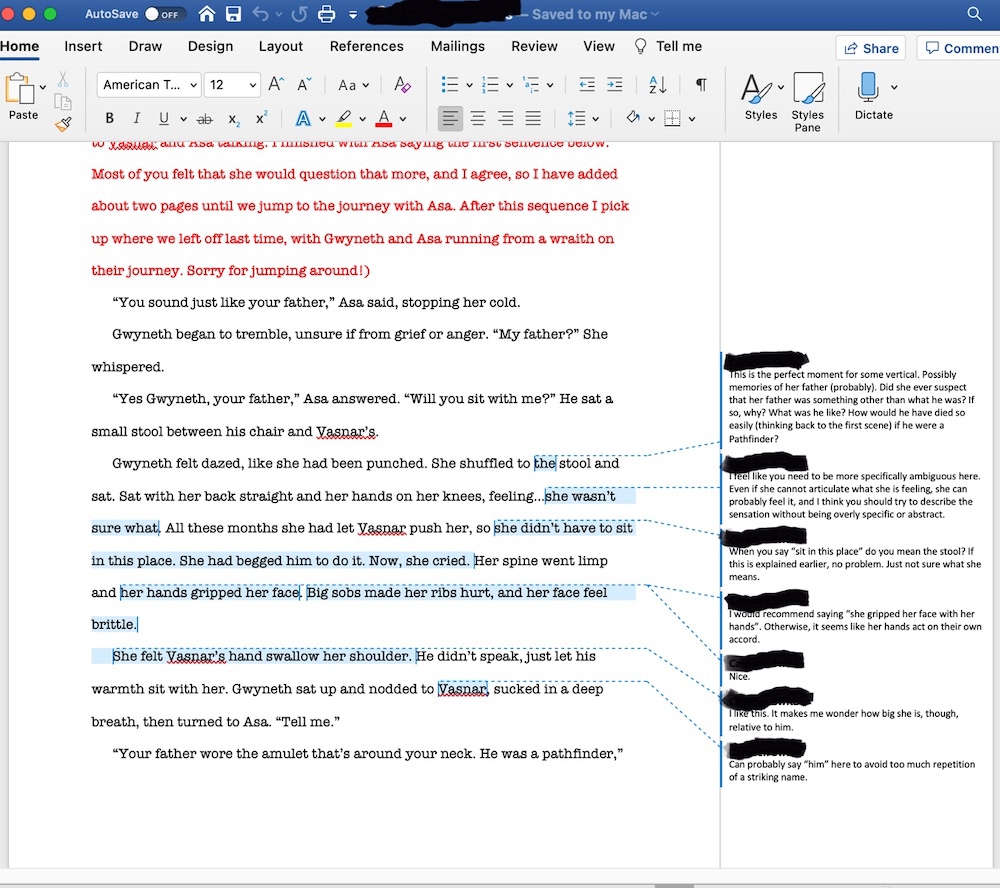So, you’ve just finished writing your manuscript. It’s all there: the cage within which the protagonist finds themselves trapped, the escape where some life-changing event forces them out into the world, the gatekeeper—that magical being who will mentor our young heroine to greatness—the wasteland where she will train and gather allies and gear to win the day. And finally, her dragon, that overwhelming objective that only she can take on. If she wins, life is good. If not, the world ends.
Spoiler alert: she wins. But it’s not enough. You start picking through the story and begin to see problems. The big stuff is there: good and evil, right and wrong, but the depth isn’t. Our protagonist doesn’t struggle. She’s too clean, too plain. How do we tell our author that their baby needs considerable re-working? It is the work of a developmental editor to tell the author, “we love your baby, but it could be better.”
The success of a book is ultimately the work of a team, but that team has an MVP: the author. We have to convince the author to change their work. It may be easiest to lay out the facts, but as we know, facts are not always the point. We have to sell it, and the easiest way to sell it is to care. Have empathy for the work your author has done. Respect the huge investment of time and emotion they have poured into their pages—the pages you’re about to criticize.
Here’s our main problem: the protagonist goes through the entire novel without traits of her own; she is the quintessential heroine—she works hard, learns fast, she is brave in the face of danger, blah-blah-blah. What if she was more impatient? What if she doubted herself along the way? This would make her more relatable to the reader, so our job as editors is to convey this to the author in a way they will be receptive to.
Let’s look at two ways that we could say this.
- “The book looks good, but it lacks depth. You’ve covered the major bases for a fantasy novel, but your characters are one-dimensional. Take Helen: we rarely see her rattled. She makes it from peasant to heroine without breaking a phycological sweat. We only see her agitated once when Sophia pushes her in training. I wish there were more of that.”
Or:
- “You have the big stuff—the hard stuff—done. Congratulations! Your world is beautifully described and well thought out. Helen, your protagonist, works nimbly from farm girl to warrior, eating up the challenges before her. I especially love her pushback against Sophia, the swordmaster who teaches her how to wield a blade. I am wondering if we can get more of this Helen on the page. This feistiness is great stuff. I think there are opportunities to introduce this earlier.”
But remember, this stuff is there. It’s in your author’s mind. They see it. They feel it. They just haven’t gotten it on the page yet, and if we become their ally, we can get it there.

